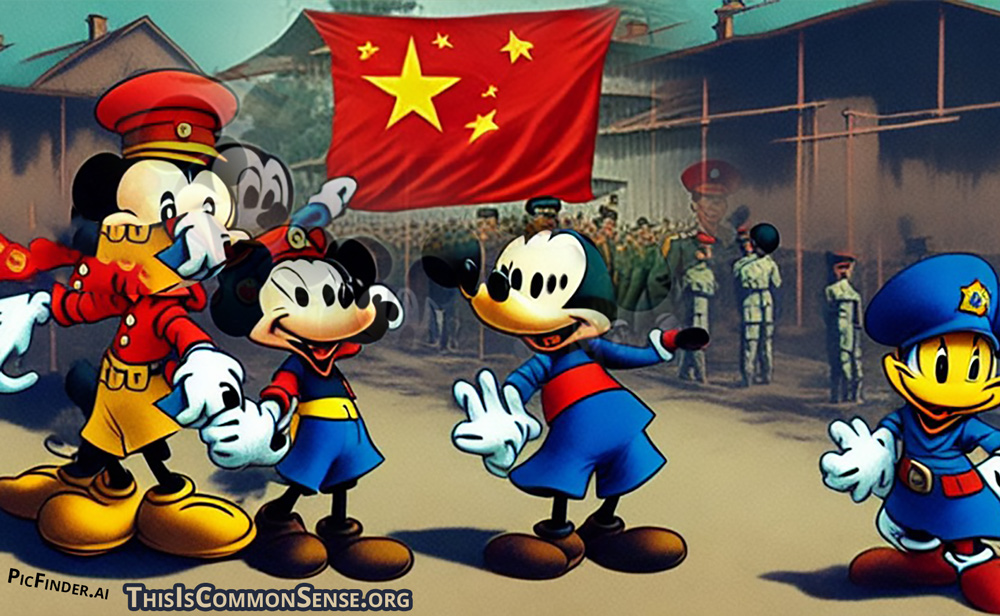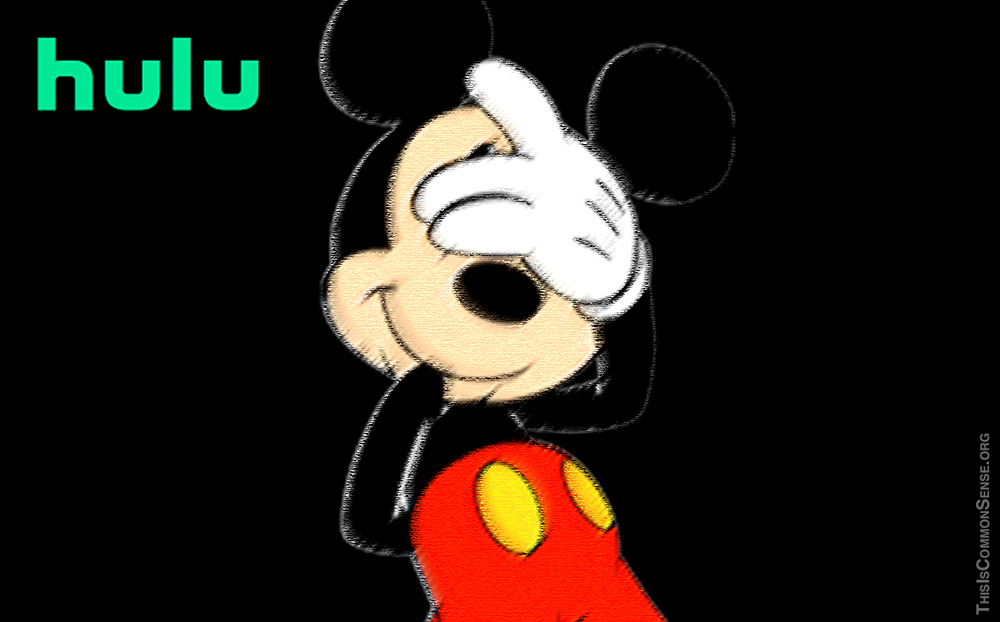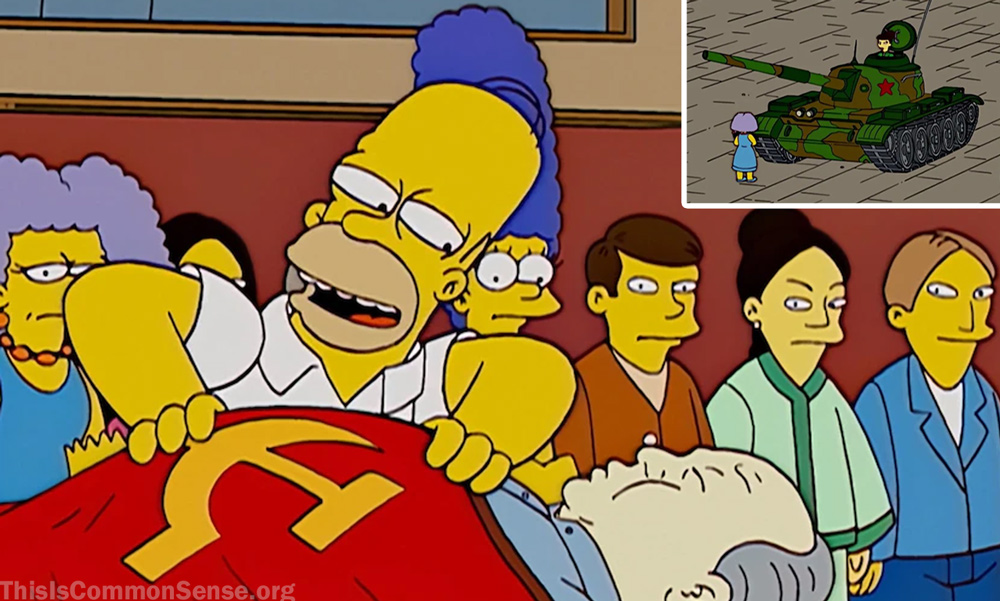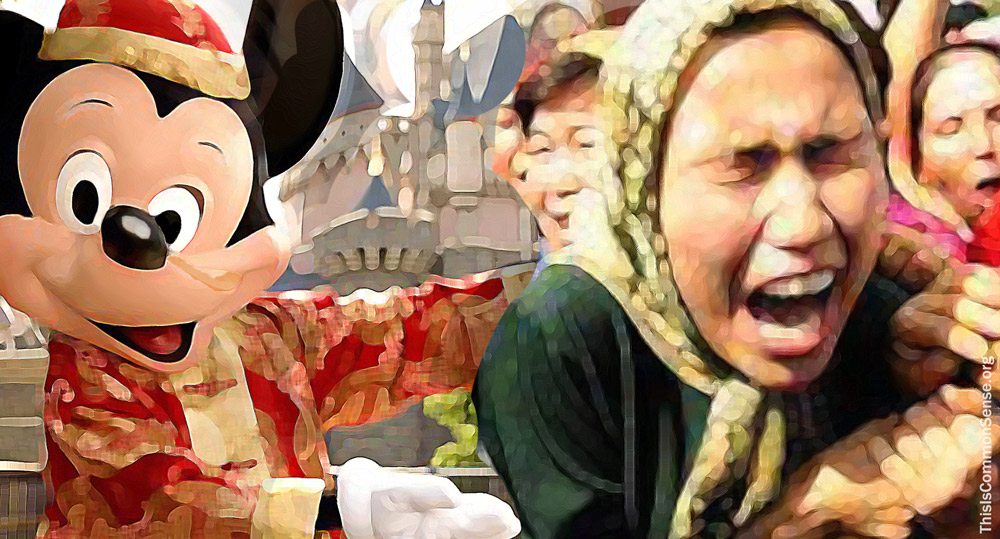The Disney company, old chum of Chinese tyranny, is at it again.
In November 2021, Disney hid from Hong Kong viewers an episode of The Simpsons that mentions the Tiananmen Square massacre in a way not laudatory of the Chinese government. Disney had recently acquired 20th Century Fox, now called 20th Century Studios, which produces The Simpsons.
And now Disney has removed an episode from its Hong Kong platform because it refers to “forced labor camps” in China.
Let us not say that The Simpsons is just a cartoon.
Everything you could want to know about the evils perpetrated by the Chinese government, as established by eyewitness accounts and other documentation, is available in many videos and articles and books. But not everybody reads Steven Mosher or BBC backgrounders on the detention and murder of the Uyghurs.
When a cartoon character says “Behold the wonders of China. Bitcoin mines, forced labor camps where children make smartphones, and romance,” a viewer not yet acquainted with China’s policies has two options. He can let the words slide by unheeded, or he can make a mental note to find out what the cartoon is talking about.
I don’t want a world where such opportunities for enlightenment in our most popular cultural products are routinely squelched — in Hong Kong or anywhere else — by the likes of Disney, an entity whose controlling officers are much more concerned to rationalize, hide, and accommodate tyranny than to expose and counter it.
With the Chinese Communist Party pushing Disney to censor, why don’t we pummel Disney in the pocketbook from the freedom side?
This is Common Sense. I’m Paul Jacob.
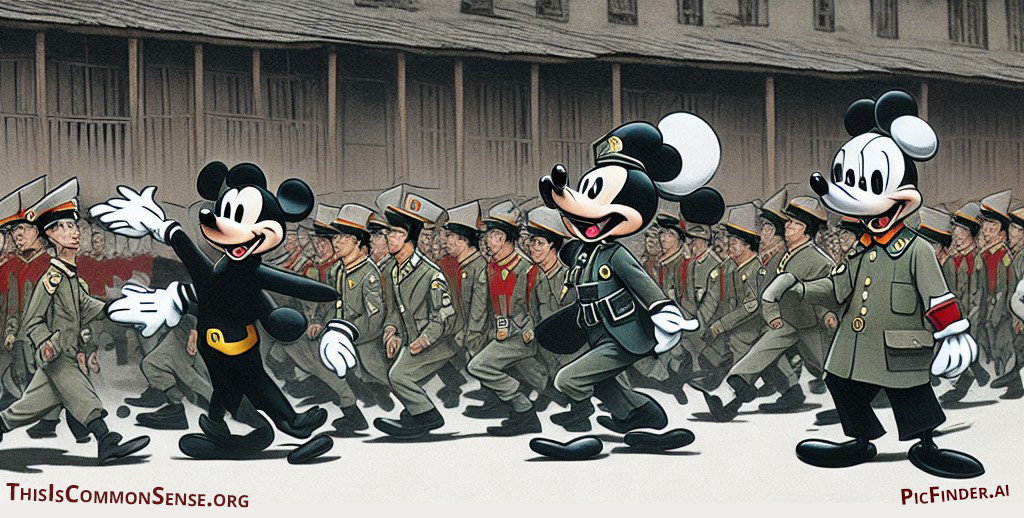
See also:
Illustration created with PicFinder.ai
See all recent commentary
(simplified and organized)
See recent popular posts
